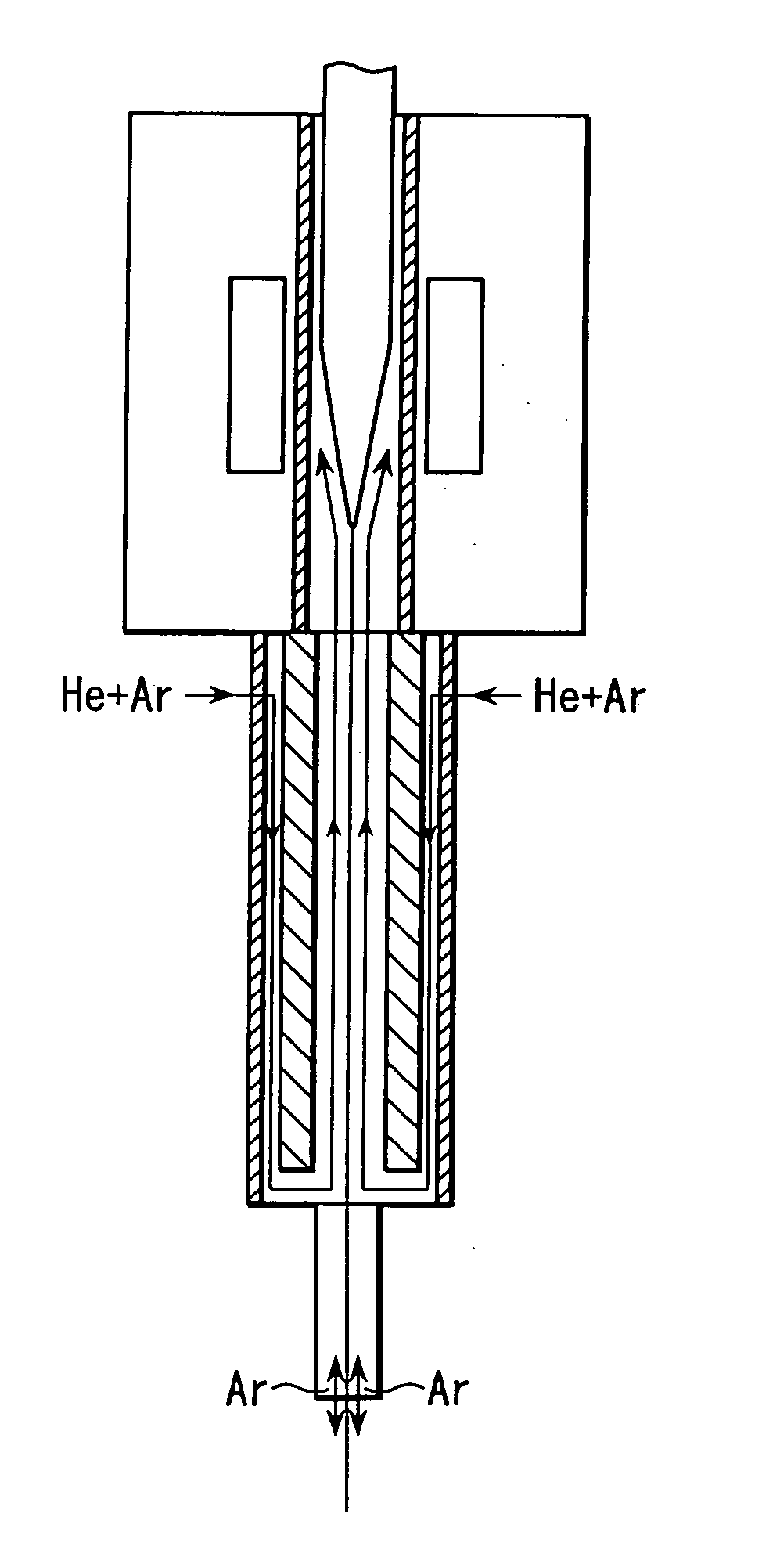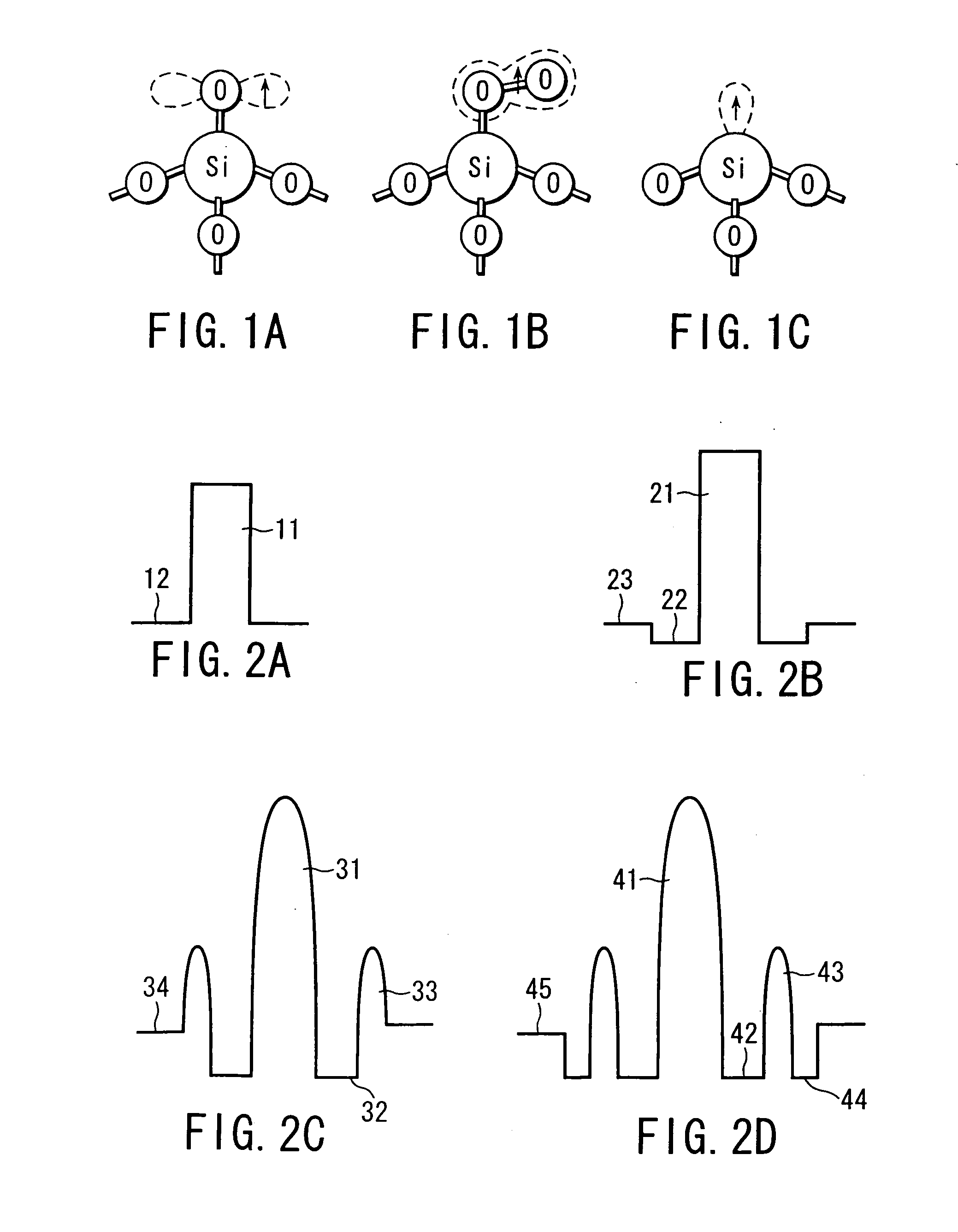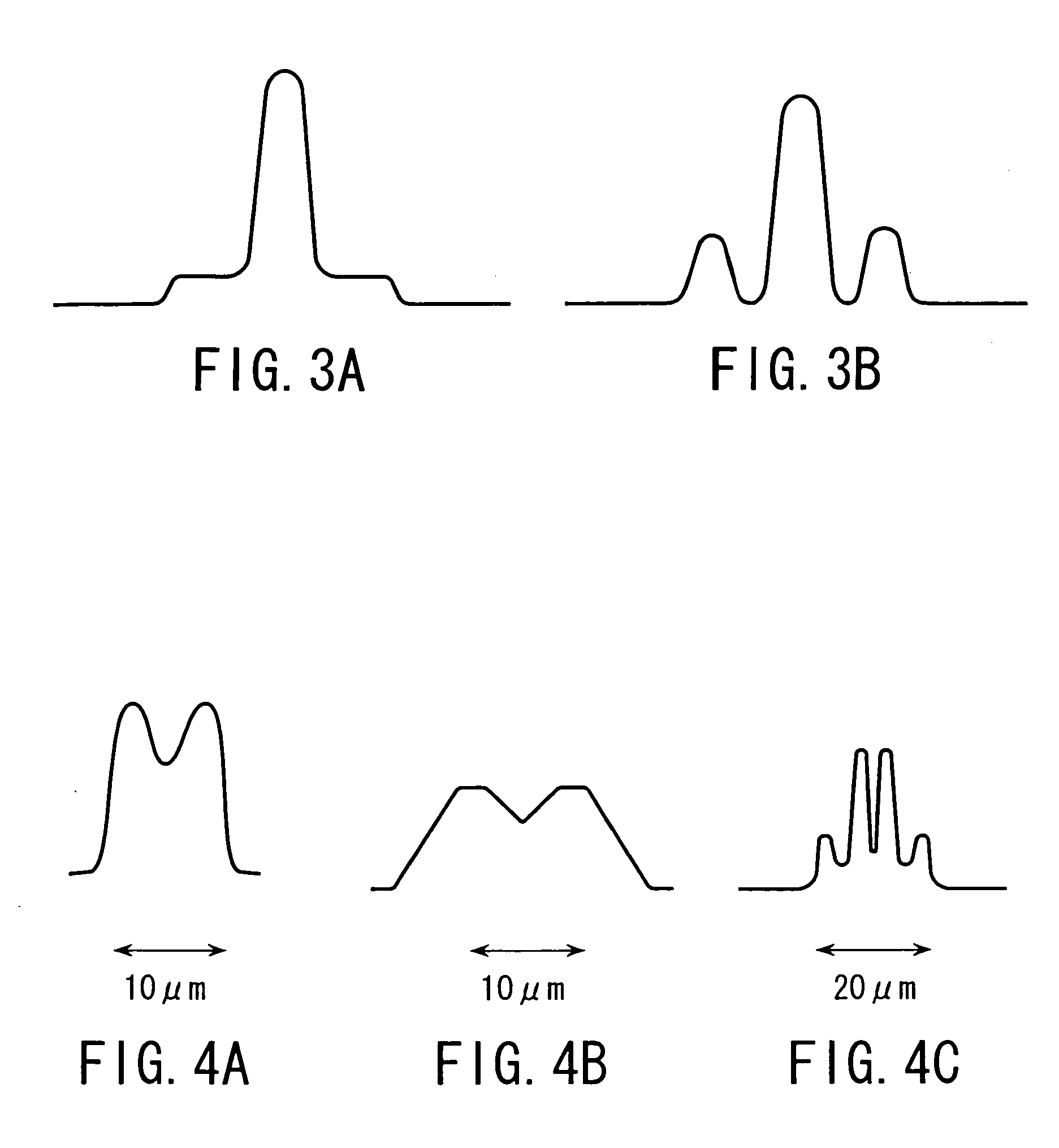Single mode optical fiber, method of manufacturing the same, and apparatus for manufacturing the same
a single-mode optical fiber and manufacturing method technology, applied in the field of single-mode optical fiber, can solve the problems of increased transmission loss, waveform distortion of transmitting optical signal, paramagnetic defect of optical fiber, etc., and achieve excellent hydrogen resistance characteristics and long-term reliability high
- Summary
- Abstract
- Description
- Claims
- Application Information
AI Technical Summary
Benefits of technology
Problems solved by technology
Method used
Image
Examples
first embodiment
[0046] A single mode optical fiber according to the present invention is featured in that density of non bridging oxygen hole center (NBOHC) is not higher than 1.0×1014 spins / g in terms of spin density measured by an electron spin resonance method. The lower limit of the spin density, which is not particular limited, is generally about 1.0×1011 spins / g.
[0047] If the density of NBOHC exceeds 1.0×1014 spins / g, transmission loss is increased in the vicinity of the wavelength of 1.52 μm when hydrogen molecules are diffused and impregnated in the optical fiber.
[0048] In the single mode optical fiber according to the first embodiment of the present invention, it is desirable for the density of the paramagnetic defect Si (D)-E′ in the glass part to be not lower than 1.0×1012 spins / g in terms of spin density measured by an electron spin resonance method. If the density of Si (D)-E′ is not lower than 1.0×1012 spins / g, it is possible to further prevent the increase in transmission loss in th...
second embodiment
[0055] A single mode optical fiber according to the present invention is featured in that the density of the NBOHC contained in the MFD region of the glass part is lower than the NBOHC density contained in the cladding region outside the MFD region. It is possible to improve the hydrogen resistance characteristics of the optical fiber by lowering the density of the NBOHC in the region through which the light is propagated as described above.
[0056] In the single mode optical fiber according to the second embodiment of the present invention, it is desirable for the density of the NBOHC contained in a region having a radius of 25 μm from the center of the glass part to be not higher than 1.0×1013 spins / g in terms of a value of the spin density measured by the electron spin resonance method. The lower limit of the spin density, which is not particularly limited, is generally about 1.0×1011 spins / g.
[0057] If the density of the NBOHC exceeds 1.0×1013 spins / g, transmission loss is increas...
third embodiment
[0062] A single mode optical fiber according to the present invention is featured in that the fictive temperature obtained from a ratio of a defect line denoting a three-membered ring structure to a defect line denoting a four-membered ring structure, which is obtained by allowing a transmitting light to be incident in the central region of the MFD region of the glass part and by measuring a deviation between Rayleigh scattering line and Raman scattering line, is not higher than 1,200° C. The lower limit of the fictive temperature, which is not particularly limited, is generally about 1,000° C. The amount of increase in the OH absorption loss of 1.38 μm caused by the exposure to hydrogen can be lowered by setting the fictive temperature at 1,200° C. or lower.
[0063] In the single mode optical fiber according to the third embodiment of the present invention, it is desirable for the increase in the loss other than the increase in the loss caused by the hydrogen molecules diffused in th...
PUM
| Property | Measurement | Unit |
|---|---|---|
| outer diameter | aaaaa | aaaaa |
| temperature | aaaaa | aaaaa |
| zero dispersion wavelength | aaaaa | aaaaa |
Abstract
Description
Claims
Application Information
 Login to View More
Login to View More - R&D
- Intellectual Property
- Life Sciences
- Materials
- Tech Scout
- Unparalleled Data Quality
- Higher Quality Content
- 60% Fewer Hallucinations
Browse by: Latest US Patents, China's latest patents, Technical Efficacy Thesaurus, Application Domain, Technology Topic, Popular Technical Reports.
© 2025 PatSnap. All rights reserved.Legal|Privacy policy|Modern Slavery Act Transparency Statement|Sitemap|About US| Contact US: help@patsnap.com



